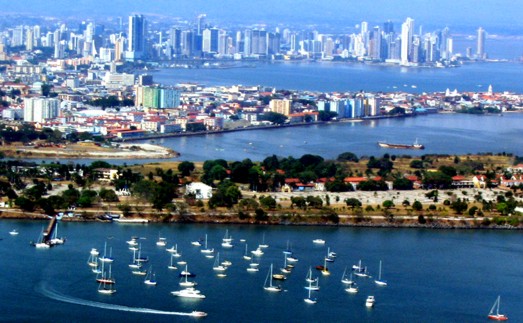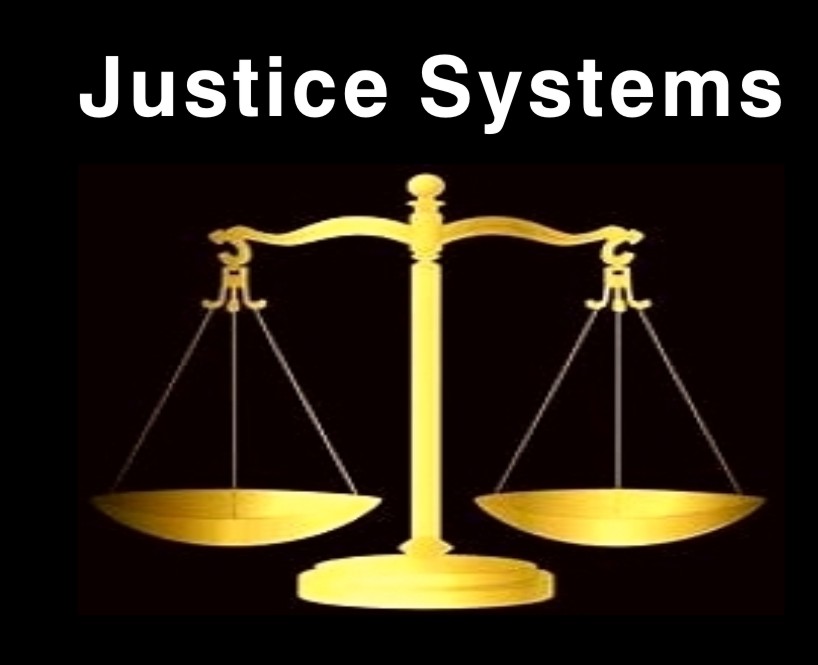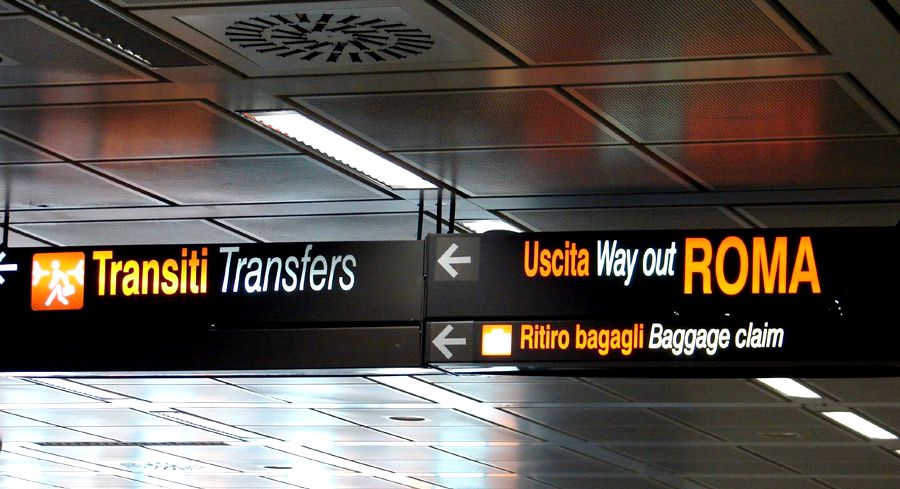
Category: Amanda Knox
No-Extradition Hoax - In Fact Perps Usually Learn Of Requests Only After Their Arrests
Posted by Peter Quennell

Mafia boss Domenico Rancadore who Italy has long wanted back now in London under arrest
1. The Probable Suddenness Of Arrest
Knox’s final conviction with no further appeal is likely by end-March. She can certainly expect that.
Knox has talked about a fight. But what fight? Not a single lawyer familiar with the extradition treaty, the hard evidence, or the precise decisions of the courts has sustained the hoax that Knox has a real shot.
As to why, you may like to check our past posts down below, which explain the precedents and the law. The latest posts are at the top.
The other thing Knox may expect - or not expect - is that the US Marshals will arrive at her current whereabouts within minutes of the verdict to lock her up. Search the Internet on extraditions and associated arrests, and there are two things you are unlikely to find:
- Examples of countries refusing to extradite to Italy once the complete legal process is done. Italy’s system is known to be fair and precise and to give defendants breaks no other system does. For example, Knox had six opportunities to convince judges and prosecutors she was innocent even before she ever went to trial. You wont find a foreign parallel to that.
- Examples of countries signaling an extradition request in the public domain. Usually the first that most people in most countries - and the perps themselves - learn about extradition requests is when the perp is already sitting in a cell. For obvious reasons the US and the UK and Italy all have policies in place to avoid signalling an arrest in advance.
The perp may choose then to fight but it will be from inside a cell. We can find no cases where any country ever turned down an Italian government request after the full legal process had been and gone. Not one.
The UK seemed to be making an unfortunate exception (much ridiculed withing the UK itself) in the case of Mafia boss Domenico Rancadore who Italy long wanted back. But his trial is still ahead of him, and now he too is under arrest and in a cell.
His 18-month extradition fight has cost him a huge amount and (see below) the voracious UK media chased him every time he stepped outside (already shades of the UK media and Knox).
In Knox’s case there seem neither the lawyers nor the money needed to do better than Mr Rancadore. Lawyer Ted Simon, who seemed to function more as a spin doctor, jumped or was dropped when Knox’s team became 100% ineffective amateurs desperate for a payday themselves.
2. Main Past Posts on This Hoax
- Click here: The US Lacks Legal Authority To Decline To Deliver A Guilty Knox To Italian Authorities.
Click here: Tips For The Media: In Fact Knox Extradition Is Likely To Be Readily Granted.
Click here: US Measures Available To Italy To Secure Wrongdoers Without Argument
Click here: Human Rights Group “Human Rights Watch” Gives An Approving Nod To Italy.
Click here: Appeal Session #10: After Defense Remarks Panel Of Judges Reaches Its Decision: BOTH GUILTY.
Click here: Rejected Yet Again By Knox, Sollecito Seems Frantic To Avoid What Might Be A Final Return To Italy.
Click here: The Prospects In Favor Of A Possible Fugitive Amanda Knox Take Yet Another Hit.
Click here: Some Homework For Curt Knox/Marriott/FOA: How Leaning On Italian Judiciary Can Seriously Misfire.
Click here: Another US-Italian Case Shows The Utter Futility Of Trying To Strongarm The Italian Justice System.
Click here: Italian Judge Ruling Is Tough But Fair In Another Case Involving Americans.
Click here: The Considerable Number Of Suspected Perps That Countries Extradite Daily To Other Countries #2.
Click here: The Considerable Number Of Suspected Perps That Countries Extradite Daily To Other Countries.
Click here: CIA v. State Department: A Significant Development For The Perugia Case?
Before arrest Rancadore and wife trying to keep their faces off UK TV

The US Lacks Legal Authority To Decline To Deliver A Guilty Knox To Italian Authorities
Posted by TomM

[Rome airport; exceedingly rare for those convicted of Italian crimes not to be sent back via here]
The reporting on this case has, with few exceptions, been poor.
Recent reporting on whether the US would extradite Amanda Knox continues that tradition, ranging from assertions that “sources” within the State Department say they would never extradite her, to claims that the risk of extradition is real, but that the Secretary of State has the discretion to refuse to extradite.
If the Secretary of State actually has this discretion, it must be grounded in the law.
That means it must be found in the Constitution, or in an act of Congress, or in a treaty—all of which constitute the “law of the land”. Beyond authorizing the President to make treaties, with the consent of two thirds of the Senate, the Constitution sheds no further light.
The only act of Congress dealing with extradition of US citizens is Title 18, United States Code, section 3196; a bit of background first.
There is no uniform US extradition treaty. Each treaty is separately negotiated with the other sovereign nation. Historically, many of the treaties entered into by the US contained clauses providing that neither country was obligated to extradite its own citizens.
Notwithstanding this, the US had extradited US nationals on the basis of discretion to extradite even though extradition was not required by the language of the treaty. But in 1936 the US Supreme Court held that if the treaty does not “obligate” the requested party to extradite its own citizens, the Secretary of State does not have the discretion to deliver the person sought to the requesting country. [Valentine v. United States ex rel. Neidecker 299 U.S. 8]
In 1990, Congress passed 18 U.S.C § 3196, captioned “Extradition of United States citizens:”
“If the applicable treaty or convention does not obligate the United States to extradite its citizens to a foreign country, the Secretary of State may, nevertheless, order the surrender to that country of a United States citizen whose extradition has been requested by that country if the other requirements of that treaty or convention are met.”
That is the full extent of Congressional action on extradition of US citizens; there is no Congressional grant of discretion to the Secretary of State to decline extradition in the face of a treaty obligation.
Some US extradition treaties contain clauses that give the requested country the discretion not to extradite its own citizens; perhaps that is where the idea that the Secretary of State has discretion not to extradite Knox comes from.
Here, for example, is a clause from the US-Sweden treaty:
“There is no obligation upon the requested State to grant extradition of a person who is a national of the requested State, but the executive authority of the requested State shall, subject to the appropriate laws of that State, have the power to surrender a national of that State if, in its discretion, it be deemed proper to do so.”
The treaty with Italy is short (ten pages) and written in plain language. The treaty has commences with Article I, captioned “Obligation to Extradite”:
“The Contracting Parties agree to extradite to each other, pursuant to the provisions of this Treaty, persons whom the authorities of the Requesting Party have charged with or found guilty of an extraditable offense.”
The cover letter of the Secretary of State to then-President Reagan explains: “Article I obligates each State to extradite to the other, in accordance with the terms of the Treaty, any persons charged with or convicted”¦”. (emphasis added)
There are mandatory grounds for refusal, such as political or military acts, double jeopardy (if the person sought has already been tried by the requested State for the same offense), or if the prosecution or penalty is time-barred in the requesting State.
There is just one discretionary ground: if the country requested is also prosecuting the person sought for the same act.
Article 4 provides:
“A Requested Party shall not decline to extradite a person because such a person is a national of the Requested Party.”
Thus, any discretion to deny extradition implied by 18 USC 3196 has no application to requests made under this treaty. Further, although some appellate cases have treated some issues regarding extradition of nationals differently, they fairly firmly hold to the difference in the meaning of mandatory words like “shall” and “obligate” on the one hand, and discretionary or permissive words like “may”.
Comments to the effect that the US has declined extradition to Italy in the past are superficial and uninformed.
The first illustration such commentators cite is that of the Air Force pilot who severed a ski lift cable, causing multiple deaths. That was not an extraditable offense under the treaty because of double jeopardy; the pilot had been court martialed. Although his acquittal enraged Italians, the pilot had already been tried by the US, and thus his case fell under the mandatory ground to denial of extradition specified in the treaty.
The other example mentioned is that of the CIA operatives who were prosecuted in absentia for the abduction of Abu Omar in Milan. The Italian Minister of Justice refused, during both the Berlusconi and Prodi administrations, requests of the Milan court to commence extradition proceedings. In Italy, the courts and the government are independent, and the courts lack power to compel government to make a request for extradition.
Even if the Italian government had made an extradition request, there is at least a colorable argument to be made that this was in the nature of a military act in the US war on terror, thus constituting a mandatory ground of refusal.
Thus, if Italy requests the extradition of Amanda Knox, the US lacks legal authority to decline to deliver her to Italian authorities. If the US government wants to avoid extraditing her, it will have to rely on diplomacy rather than law. In other words, it will need to convince the Italian government not to make an extradition request in the first place.
The Prospects In Favor Of A Possible Fugitive Amanda Knox Take Yet Another Hit
Posted by Peter Quennell

[Above and at bottom: Panama, where the fugitive Robert Lady was setting himself up to be untouchable]
The former CIA operative Robert Seldon Lady is on the lam from Italian law.
He is now a worldwide fugitive - with fewer governments stepping forward with offers for him than for the other famous fugitive Edward Snowden. We posted briefly on the case here and here and two weeks ago Barbie Nadeau posted a good update here.
Robert Lady was the leader of the team that kidnapped the supposed Egyptian radical Abu Omar in Milan in 2003. Then he escorted Abu Omar to Egypt and he was apparently present for some months while Abu Omar was tortured.
The Milan court put online in English this 210-page summary of the case against Robert Lady and another 18 Americans who were involved. Amazing reading. What absolute buffoons. In total 25 Americans and 9 Italians were accused, though not all were put on trial, and as Barbie Nadeau explains, all of the others received Italian leniency.
Robert Lady didnt, though, and after he was convicted in absentia in Milan he took off out of the United States for central America. The CIA might have continued to help him there, though there were signs that the State Department and Rome Embassy, who have many other important dealings with Italy, were pretty ticked.
One CIA operative even sued State for diplomatic immunity (none of them were granted it).
When it became known that Robert Lady was living in Panama (a country without an extradition treaty with Italy) and close to citizenship, Italy through Interpol issued a worldwide arrest warrant, and requested that Panama round him up.
A few days ago, Robert Lady sought to move to the next country, Costa Rica, and was briefly detained.
What happened next is very murky. But it seems that Robert Lady was headed for the US by air, with possible help from some arm of the federal government - and then he just suddenly disappeared.
Last week, the Panamanians picked him up. It was the real world equivalent of a magician’s trick. He was nowhere, then suddenly in custody and in the news, and then””poof again!””he wasn’t. Just 24 hours after the retired CIA official found himself under lock and key, he was flown out of Panama, evidently under the protection of Washington, and in mid-air, heading back to the United States, vanished a second time.
State Department spokesperson Marie Harf told reporters on July 19th, “It’s my understanding that he is in fact either en route or back in the United States.” So there he was, possibly in mid-air heading for the homeland and, as far as we know, as far as reporting goes, nothing more. Consider it the CIA version of a miracle. Instead of landing, he just evaporated….
Having vanished in mid-air, he has managed so far not to reappear anywhere in the US press. What followed was no further news, editorial silence, and utter indifference to an act of protection that might otherwise have seemed to define illegality on an international level.
There was no talk in the media, in Congress, or anywhere else about the US handing over a convicted criminal to Italy, just about how the Russians must return a man [Snowden] Washington considers a criminal to justice.
Nevertheless, a thorn in the flesh of American-Italian relations has been disappeared, suggesting that the pro-friends-with-Italy State Department line is dominant. Having lost everything , the former US officlal Robert Lady is now a world-wide fugitive and further US help if any is likely to be very furtive.
Confessed druggie and convicted felon Amanda Knox, a private citizen, can hardly expect any more official deference.
The Considerable Number Of Suspected Perps That Countries Extradite Daily To Other Countries
Posted by Peter Quennell

[Umarked Federal flying paddy-wagon, seen here leaving Seattle, transports 300,000 prisoners annually ]
Extradition is not without its controversies and not all extradition requests see a suspect sitting on a plane handcuffed to a federal marshal.
However, most do, and the US at federal and state level is at any one time processing hundreds of requests and transporting suspected perps hither and thither - the majority, of course, internally between U.S. states, but a large minority are incoming and outgoing.
Complete refusals of extradition seem very rare, as that can cause rebound and ripple effects down the ages.
The US is sort of refusing to send some pilots and CIA operatives back to Italy for trial, but those cases are both in the realm of the quasi military. In the case of the Italian soldiers being held in India for the shooting from a oil tanker of Cochin fishermen they suspected were pirates, even Italy says rules for military must be different.
The US and Italy co-operate on law enforcement more than most countries and the FBI and its Italian equivalent have officers from the other service permanently embedded. We posted on this case of Italy sending an American renegade doctor back to Indiana to face charges.
In general extraditions in both directions between the U.S. and Italy seem to go smoothly and if the State Department ever gets involved (it states that this is Justice Department business) we don’t see any evidence of it in recent reports.
These cases - some of them involving countries sending their own nationals to other countries to face the music - are all live cases on the first 10 of 30 pages when “extradition” is searched on Google News.
- The United States extradites US national David Kramer to Melbourne in Australia. He “has been charged with 10 counts of indecent assault allegedly committed in St Kilda East when he was a teacher at a Jewish orthodox school.”
- Canada rules to send Canadian national Rapinder (Rob) Sidhu a former Royal Canadian Mounted Police officer to the US. “The U.S. indictment… alleges Sidhu… worked with convicted British Columbia smugglers Rob Shannon and Devron Quast to operate a cocaine transportation organization based in British Columbia.”
- The UK sends back Joshua Edwards, a murder suspect, to the US after he fought extradition for five years. He is accused in a 2006 shooting death in Maryland.
- The UK sends back Prine “Prince” Jones to Newark New Jersey. “The 46-year-old Birmingham, England, resident is charged in a superseding indictment with conspiracy to import and export cocaine.”
- Mexico sends back two brothers to New York City “to join a third brother to face sex trafficking charges in New York as part of a complex collaborative effort to combat human trafficking”.
- The UK sends back TV star Robert Hughes to Sydney, Australia. ““He is wanted in connection with allegations of gross indecency, indecent assault and sexual assault towards children in NSW, Australia, between August 1984 and August 1990.”
- Guatamala sends Horst Walther Overdick to New York. “Overdick, known as “The Tiger,” was detained in April during an operation to arrest [very dangerous] Zetas [cartel] operatives in the Central American country.”
- Finland sends Igor Vassiliev to the US. “Igor Vassiliev, 38, a Russian citizen, was arrested in July in Finland, based on an Interpol Red Notice. He is only the third person ever extradited from Finland to the U.S….[in 2005] a federal grand jury handed up indictments charging him with health care fraud and conspiracy to commit health care fraud and mail fraud.”
- The United Arab Emirates sends Kamchybek Kolbaye back to Kyrgyzstan after a two-year legal process. “Kolbayev faces charges of kidnapping, robbery, organization of a criminal group, illegal drug trafficking, and illegal weapons possession,”
- Israel will send Israeli national Aleksandar Cvetkovic to Bosnia. He was arrested in 2011 “on an international warrant after witnesses testified that he had assisted in the shooting of some 8,000 Muslim men and boys in Europe’s worst atrocity since World War II.”
- Ireland extradites Philip Baron to Liverpool in England. “Alleged crime gang boss Philip Baron faces four charges relating to money laundering and conspiracy to import a huge shipment of cocaine and cannabis to the UK from South Africa and Costa Rica between 2005 and 2009.”
- The US may extradite David Headley to India. “CNN-IBN reported US Under Secretary Wendy Sherman as saying, “The US acknowledges Hafiz Saeed is mastermind of 26/11 [Mumbai bomb] attacks. President Barack Obama is determined the US will bring Hafiz Saeed to justice.”
- The UK will extradite British national Lee Aldhouse to Thailand. “Mr Aldhouse successfully fled Thailand after allegedly stabbing American Deshawn Longfellow to death in August 2010. He was later arrested at Heathrow Airport on an unrelated charge when he tried to re-enter the UK.”
- Mauritius has sent Captain Kung back to Taiwan. “Kung was suspected of shooting and killing 12 Chinese sailors [in 1999] on his… fishing vessel during a failed mutiny attempt on Feb. 1999. The vessel at the time was sailing on waters northwest of Mauritius…. Kung was later arrested by Mauritius authorities and sentenced to 20 years in prison.”
- Italy will deport Muiz Trabulsi to Tunisia under an agreements signed by Italy Justice Minister Paola Severino. Muiz Trabulsi is “the nephew of Layla Al-Trablisi, Tunisia’s ex-first lady, to stand trial in Tunisia…. [a part of Tunisia’s eforts] efforts to bring back money stolen by members of the former regime”.
- Bulgaria extradited Stefan Klenovski to Italy, who “had a Europol Arrest Warrant (EAW) issued against him by Italian authorities on suspicions of participating in the crime ring practicing ATM fraud [and], was arrested on January 27 in a shopping mall in downtown Sofia.”
Two more cases are now prominently in the news: Wikileaks founder Julian Assad, holed up in the Ecuador Embassy in London, who the Brits want to extradite to Sweden, and John McAfee, the formoer software magnate now back in the US, who Belize may charge with murdering his neighbor.
Almost invariably while awaiting a final decision those subject to an extradition request have to sit out their appeals in prison. If Amanda Knox is reconvicted in a new appeal trial ordered by the Supreme Court, she could face years sitting in an uncomfortable American prison if her extradition is disputed.
Or, of course, she could willingly move straight to an Italian prison, which as she knows offer in-cell TV, private bathrooms, good career skill-building, and concerts.
[Below: Paola Severino, Italy’s relentless no—nonsense justice minister]

CIA v. State Department: A Significant Development For The Perugia Case?
Posted by Peter Quennell

As expected the Supreme Court of Cassation has upheld kidnapping convictions against 23 CIA operatives.
The landmark case dates to Feb. 17, 2003, when Hassan Mustafa Osama Nasr, a radical Egyptian cleric known as Abu Omar [image below}, walked out of his Milan apartment in broad daylight and vanished.
talian authorities used cellphone records made at the time and location of the abduction to determine that CIA officers snatched Abu Omar, drove him to nearby Aviano Air Base and flew him to Egypt. According to Italian court documents,
Abu Omar was beaten and subjected to electric shock in a Cairo prison. He was later freed.
The significant development for Meredith’s case is that the State Department had refused to organize diplomatic immunity with Italy for any of the 23.
Now at least one of them, Sabrina De Sousa (image at top with her lawyer), is suing the State Department for not having stood by her in retroactively organizing that diplomatic immunity.
All 23 could now be the subject of requests for extradition to Italy to serve out their six-year sentences, and if the US Justice Department refuses to comply they could be the subjects of worldwide arrest warrants via Interpol.
That could mean the end of their operational usefulness in the CIA and conceivably prevent any of them ever traveling outside the US again in their lifetimes.
Why have the CIA and the State Department seriously parted company here? Well, their mandates are almost polar opposites.
The State Department and its Embassies and the very considerable American presence throughout the United Nations tries hard to get along with friendly nations, and Italy is probably one of its top half-dozen friends.
The CIA on the other hand is charged with using fair means and foul to fight back against terrorism worldwide, and sometimes its practices contravene the best interests of diplomacy and the local law.
Here the CIA is coming out the clear loser and State is sweetly sitting on its hands and not upsetting Italy in any way.
Cables released so far by the State Department under the Freedom of Information Act suggest that State and the Rome Embassy really didnt ever lift a finger to subvert Italian justice on behalf of Amanda Knox.
Here’s betting more of the same - no action by State - as the Cassation appeal comes alive. And no standing in the way of an extradition request for Knox if Cassation decides Judge Masssei got the trial right.



